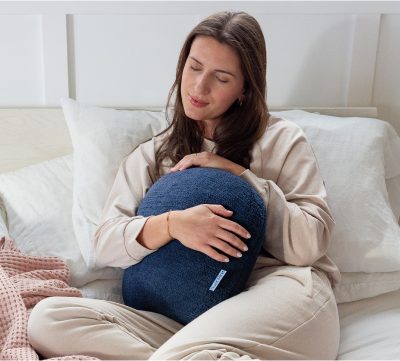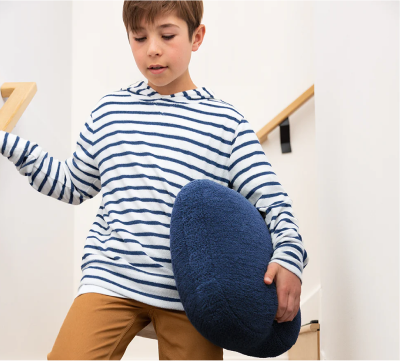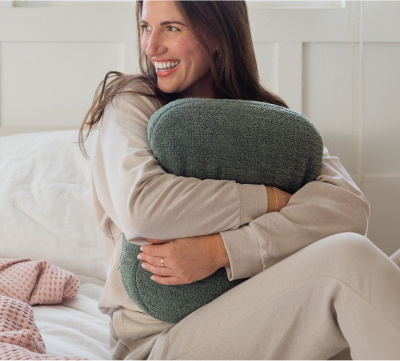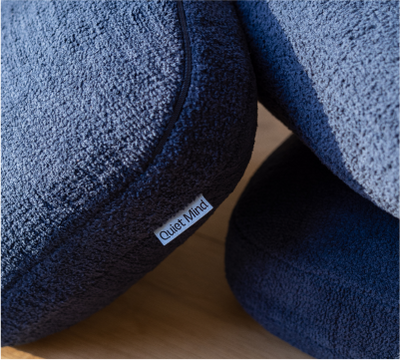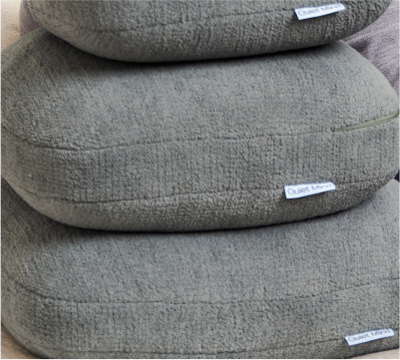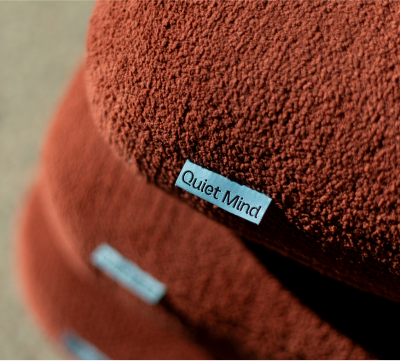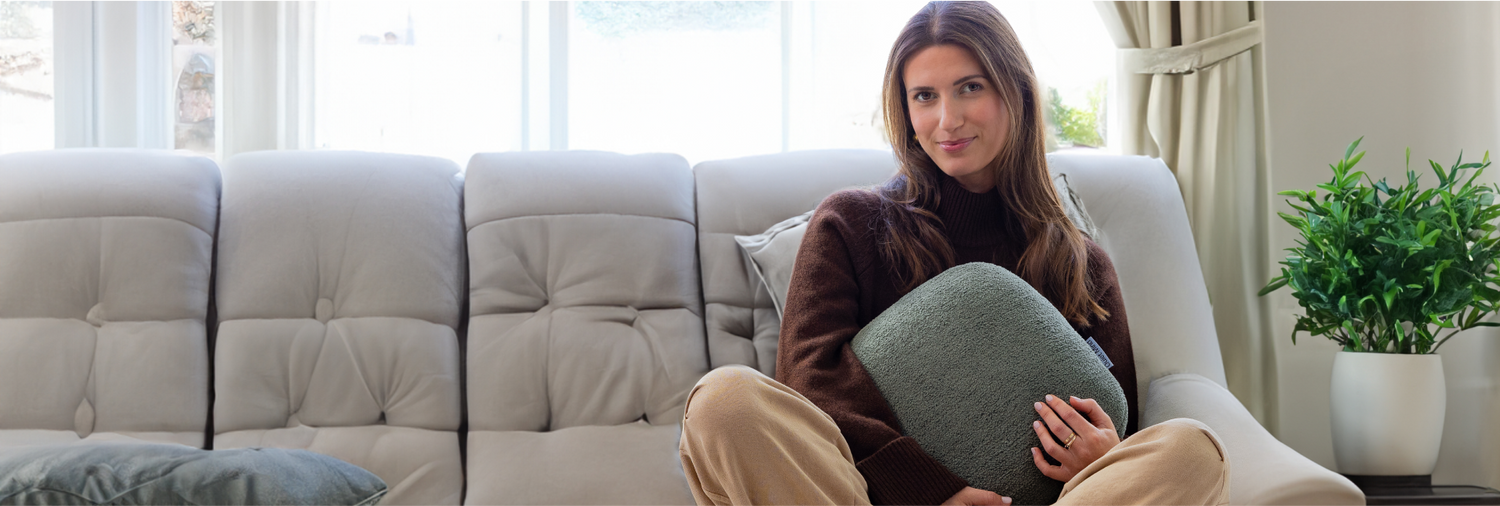If you live with ADHD—or care for someone who does—you’ve likely seen how tangled sleep can become. It’s not just about being “bad at bedtime.” For many, the ADHD brain feels most awake when the world goes quiet. Thoughts race. Bodies fidget. And sleep, even when it finally comes, might not feel restful.
This can lead to a frustrating cycle of poor sleep that worsens ADHD symptoms. Whether you’re navigating bedtime battles with a child or facing your own midnight restlessness, it helps to understand how ADHD shapes sleep—and what realistic, kind support can look like.
In this article, we’ll explore how much sleep people with ADHD truly need, why getting enough can be so difficult, and what practical steps can improve rest and restore balance.
Understanding Sleep and ADHD: Why It’s Complicated
People with ADHD often describe feeling mentally wired even when physically tired. The brain struggles to “shut off,” leading to late bedtimes, racing thoughts, or restlessness. Even if they manage to sleep the recommended number of hours, they might still wake up feeling unrefreshed.
The Brain–Sleep Connection in People with ADHD
ADHD involves dysregulation in brain chemicals like dopamine and norepinephrine, which play a role in attention and alertness—but they also influence sleep. The prefrontal cortex (which helps regulate behavior and sleep-wake cycles) often functions differently in people with ADHD. That’s why the same mind that races during the day might struggle to quiet down at night.
Research suggests circadian rhythm disruptions may be more common in those with ADHD, especially in children and teens. This can shift the natural sleep window later, creating a biological mismatch between when someone feels tired and when they need to be up for school or work.
Common Sleep Disorders Associated with ADHD
People with ADHD are more likely to experience:
- Insomnia: Difficulty falling or staying asleep.
- Restless Leg Syndrome (RLS): An uncomfortable urge to move the legs.
- Delayed Sleep Phase Disorder: A shifted internal clock, making it hard to sleep and wake at typical times.
- Obstructive Sleep Apnea (OSA): Especially in children, OSA can worsen inattention and hyperactivity.
These sleep issues often overlap and can go undiagnosed, compounding both sleep and ADHD symptoms.
Average Sleep Needs for People with ADHD
Sleep recommendations are fairly consistent across the general population, but managing ADHD requires more consistent and higher-quality sleep, as fatigue can significantly impact focus, mood, and behavior.
Recommended Sleep Duration by Age Group
|
Age Group |
Recommended Sleep (per night) |
|
Children (6–12) |
9–12 hours |
|
Teens (13–18) |
8–10 hours |
|
Adults (18+) |
7–9 hours |
However, quantity isn't everything. Sleep quality—how restful and uninterrupted your sleep is—plays a huge role, especially for people with ADHD. Tools like weighted blankets can help calm the nervous system and promote deeper, more restorative sleep by providing gentle, even pressure throughout the night.
How ADHD Affects Sleep Duration and Quality
ADHD can disrupt both how long someone sleeps and how well they sleep. Even with 8–9 hours of time in bed, a person might wake up feeling groggy if their sleep was fragmented. They may:
- Toss and turn throughout the night
- Wake up frequently without realizing it
- Experience vivid dreams or nightmares
- Wake up too early and struggle to fall back asleep
Additionally, late-night hyperfocus or overstimulation from screens can delay bedtime, leading to chronic sleep deprivation over time.
Can ADHD Cause Sleep Problems?
Yes—ADHD is often linked to sleep disturbances. But the relationship goes both ways. Poor sleep can mimic or worsen ADHD symptoms, while ADHD itself makes it harder to establish and maintain good sleep hygiene.
Causes of Sleep Disturbance in ADHD
Several factors contribute to sleep difficulties in ADHD, including:
- Delayed melatonin release (especially in the evening)
- Overstimulation before bed (from screens, noise, or movement)
- Difficulty switching off mental activity
- Coexisting anxiety or mood disorders
- Irregular routines or inconsistent sleep schedules
Even everyday habits—like doing stimulating tasks late in the evening or not having a wind-down routine—can make things harder for ADHD brains.
Signs Your Sleep Issues May Be ADHD-Related
You might notice patterns like:
- Feeling tired all day despite spending enough time in bed.
- Getting a second wind late at night.
- Being unable to wake up without multiple alarms.
- Feeling irritable, unfocused, or emotionally overwhelmed after poor sleep.
- Experiencing increased ADHD symptoms (like impulsivity or inattention) on sleep-deprived days.
These signs can easily be mistaken for general burnout or stress, so it’s important to track both sleep patterns and ADHD symptoms together.
How Much Sleep Is Too Little or Too Much with ADHD?
Striking the right sleep balance with ADHD isn’t just about getting enough hours—it’s about understanding when your body is under- or over-rested. Both sleep deprivation and oversleeping can affect focus, mood, and daily functioning in people with ADHD.
Effects of Sleep Deprivation in Adults and Children with ADHD
Sleep deprivation tends to hit those with ADHD harder than neurotypical individuals. It can intensify symptoms like:
- Difficulty concentrating or remembering tasks
- Emotional outbursts, irritability, or anxiety
- Restlessness or hyperactivity
- Risk-taking or impulsive behavior
- Fatigue that leads to “ADHD paralysis”
Children may become more hyperactive rather than sleepy when overtired, which is often misinterpreted. Adults may notice increased brain fog, reduced frustration tolerance, and a decline in executive functioning.
Oversleeping and ADHD: What to Know
On the other end of the spectrum, some people with ADHD struggle with oversleeping, especially after long periods of poor rest. This can feel like “catching up,” but too much sleep can also disrupt circadian rhythms and lead to:
- Grogginess or headaches upon waking
- Low energy and motivation
- Feeling disoriented or depressed
- Disrupted sleep the next night
Oversleeping may also be linked to coexisting conditions like depression, or be a side effect of certain medications.
Tips to Improve Sleep for People with ADHD
Supporting better sleep with ADHD requires intentional planning, gentle consistency, and adjustments to fit your sensory and cognitive needs.
Establishing a Healthy Sleep Routine
Consistency is key for calming the ADHD brain at night. Try:
- Going to bed and waking up at the same time every day (including weekends)
- Creating a wind-down routine: 30–60 minutes before sleep, limit screens and switch to quiet, calming activities.
- Using dim lighting in the evening to support melatonin production.
- Incorporating sensory tools like weighted pillows, low-humming sound machines, or soft textures.
Role of Medication, Diet, and Environment
Medications, food, and surroundings can directly impact sleep in people with ADHD.
- Stimulant medications (e.g., methylphenidate, amphetamines) can interfere with sleep if taken too late in the day.
- Caffeine can linger in the body for hours—limit intake after early afternoon.
- Blood sugar crashes at night can disrupt sleep, so consider a light protein-rich snack before bed.
Optimize the sleep environment:
- Keep the room cool, dark, and quiet.
- Use blackout curtains or white noise to minimize sensory disruptions.
- Limit clutter if visual overstimulation affects your sense of calm.
- Consider using a weighted blanket to provide calming pressure and support relaxation during sleep.
When to See a Specialist for ADHD and Sleep Issues
If sleep problems persist despite lifestyle changes, it may be time to consult a sleep or ADHD specialist. Often, coexisting sleep disorders go undiagnosed, especially when ADHD is the main focus.
Diagnosis and Evaluation of Sleep Disorders in ADHD
Specialists may recommend:
- A sleep study (polysomnography) to check for conditions like sleep apnea or periodic limb movement disorder.
- Actigraphy, which uses a wrist monitor to track sleep patterns over time.
- Clinical interviews about sleep hygiene, emotional regulation, and daily functioning.
Proper diagnosis allows for a more personalized treatment approach.
Treatment Options: Behavioral Therapy, Medication, and More
Supportive treatments may include:
- Cognitive Behavioral Therapy for Insomnia (CBT-I): Helps reframe thoughts and behaviors around sleep.
- Chronotherapy: Gradually shifts sleep timing for those with delayed sleep phase.
- Melatonin supplementation: Used with medical guidance, especially in children.
- Medication adjustments: In some cases, tweaking ADHD meds or using low-dose sleep aids is beneficial.
Above all, treatment plans should be tailored—not just for sleep but for the individual’s ADHD profile and lifestyle needs.
About Quiet Mind
At Quiet Mind, we believe in the power of simple, natural solutions to ease the mind and body. Our signature weighted pillows are designed to provide comforting pressure, helping to alleviate stress, anxiety, and restlessness.
Whether you're seeking a moment of calm during a hectic day or a more restful night's sleep, Quiet Mind offers tools to support your journey toward tranquility. Discover the soothing embrace of our weighted pillows and find your path to a quieter mind.
FAQs About Sleep and ADHD
Is 5–6 hours of sleep enough for someone with ADHD?
Usually not. While people can survive on 5–6 hours, they won’t thrive. Most adults with ADHD need 7–9 hours, while teens and children may need more to regulate mood, focus, and behavior.
Do ADHD medications affect sleep patterns?
Yes, particularly stimulants, which can delay sleep onset if taken too late. However, for some, the right dose improves sleep by calming daytime restlessness and impulsivity.
What time should someone with ADHD go to bed?
There’s no universal bedtime, but aligning with natural circadian rhythms (ideally between 9:30–11:30 pm) helps. The key is consistency—same time each night, even on weekends.
Can improving sleep reduce ADHD symptoms?
Absolutely. Better sleep supports executive functioning, emotional regulation, and sustained attention. Even modest improvements in sleep can lead to noticeable daytime gains.
Are naps helpful or harmful for people with ADHD?
Short naps (15–30 minutes) can be helpful for boosting focus and mood. However, long or late naps may interfere with nighttime sleep. Track how your body responds and adjust as needed.
